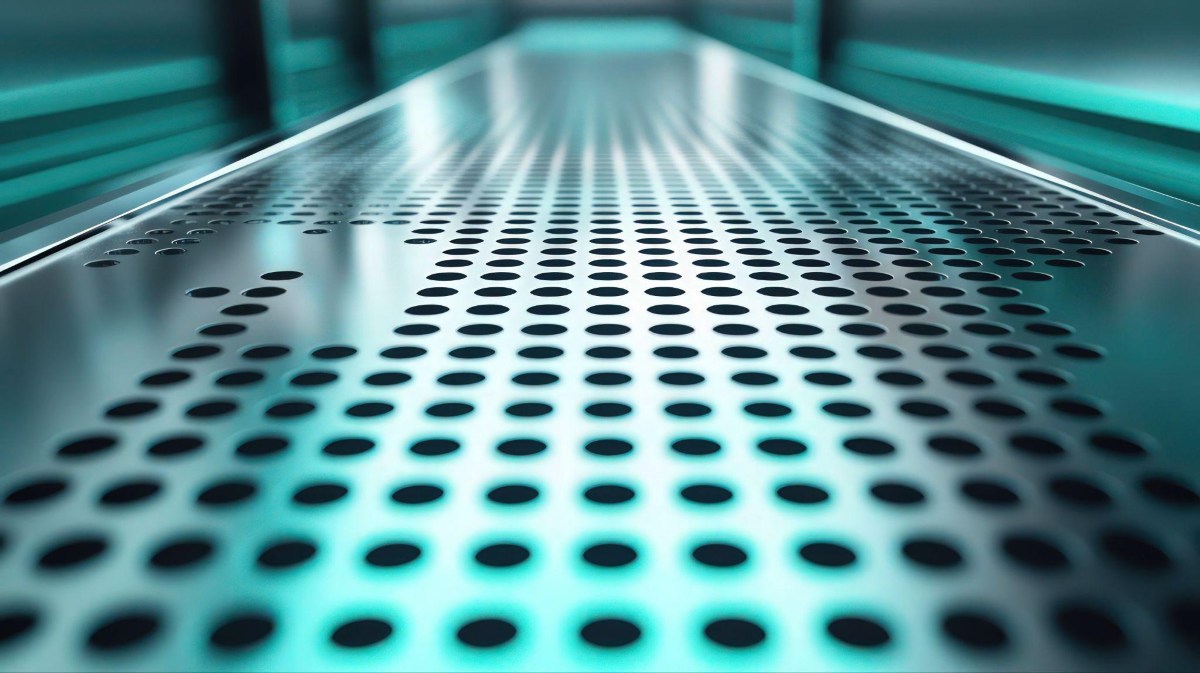Is Perforated Metal Really Necessary? — Rethinking Acoustic Wall Treatments from the Perspectives of Cost, Weight, and Constructability —
08/21/2025

Others
Introduction: Challenging the Conventional Assumption
Perforated metal has become a common choice for the interior finish of sound-absorbing structures in anechoic and acoustic rooms.
It is often selected for its perceived durability and appearance. However, we do not recommend it for every application.
The reason is simple: its cost and weight are disproportionately high relative to the practical benefits it provides.
The Limitations of Perforated Metal
Perforated metal is primarily used to protect soft sound-absorbing materials, such as glass wool.
Yet, it comes with several practical drawbacks:
- High material cost, especially for large surface areas—sometimes resulting in cost differences of several million yen
- Substantial weight, often reaching hundreds of kilograms depending on the scale
- Requires specialized equipment (e.g., turret punch presses) for fabrication and customization
- Depending on hole size and open area ratio, it can degrade the acoustic performance of the absorption system
Despite its popularity, perforated metal is not always the optimal solution.
Sonora’s Alternative: The BF Series
To address these issues, we recommend our proprietary BF Series (Broadband Fractal Series) as an alternative surface treatment for absorptive structures.
Key Features:
| Core | High-density glass wool for broadband sound absorption |
| Surface: | A tough, water-repellent nonwoven fabric (Tyvek) |
| Performance | Certified non-combustible, lightweight, dust-resistant, and easy to handle |
The BF Series offers equivalent protective function to perforated metal, while excelling in cost-efficiency, constructability, and acoustic integrity.
Comparison Table: Perforated Metal vs BF Series
| Criteria | Perforated Metal | BF Series (e.g., BFB) |
|---|---|---|
| Material Cost | High (including fabrication) | Significantly lower (in-house production) |
| Weight | Very heavy (can exceed several 100 kg) | Lightweight and easy to handle |
| Fabrication Flexibility | Requires specialized machinery | Easily cut and installed on-site |
| Impact on Absorption | May degrade performance depending on design | Maintains full absorption performance |
| Surface Protection | High (rigid metal surface) | High (abrasion-resistant Tyvek) |
| Fire Safety | Varies by material | Certified non-combustible |
Proven Performance and Future Outlook
Since its release in late 2020, the BF Series has been widely adopted in anechoic chambers, acoustic enclosures, and measurement boxes.
It is quickly becoming a new standard in interior acoustic treatment, especially in projects where cost and flexibility are critical.
Conclusion: Redefining the Standards of Acoustic Design
Perforated metal may be the traditional solution, but it is not necessarily the best.
Sonora’s BF Series represents a smarter, lighter, and more cost-effective approach to acoustic interior design—without compromising on performance or safety.